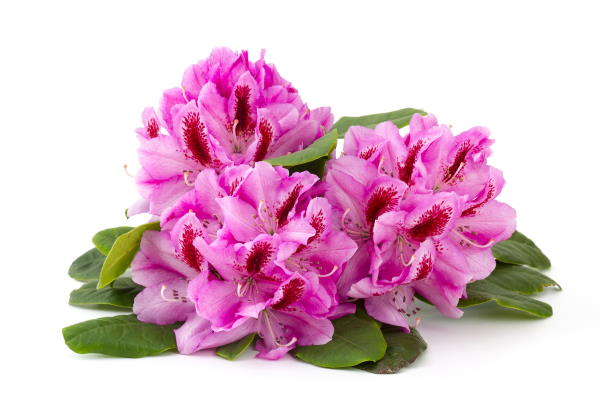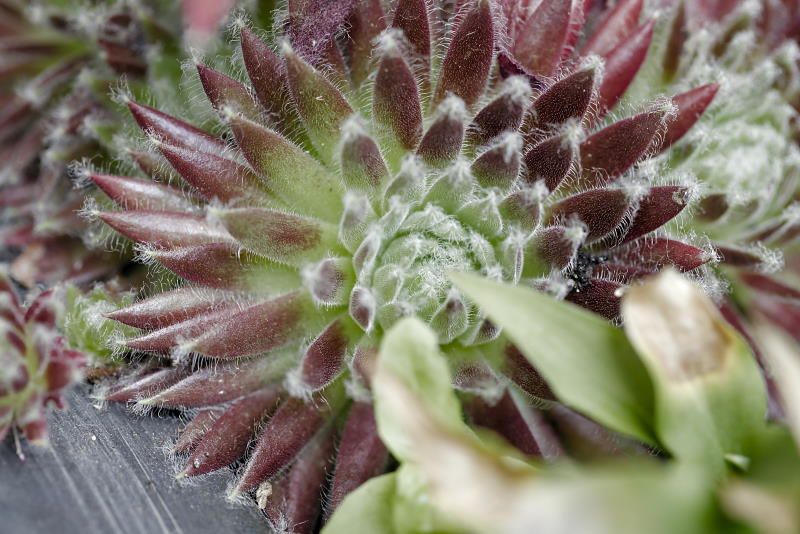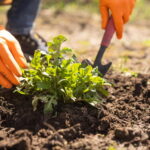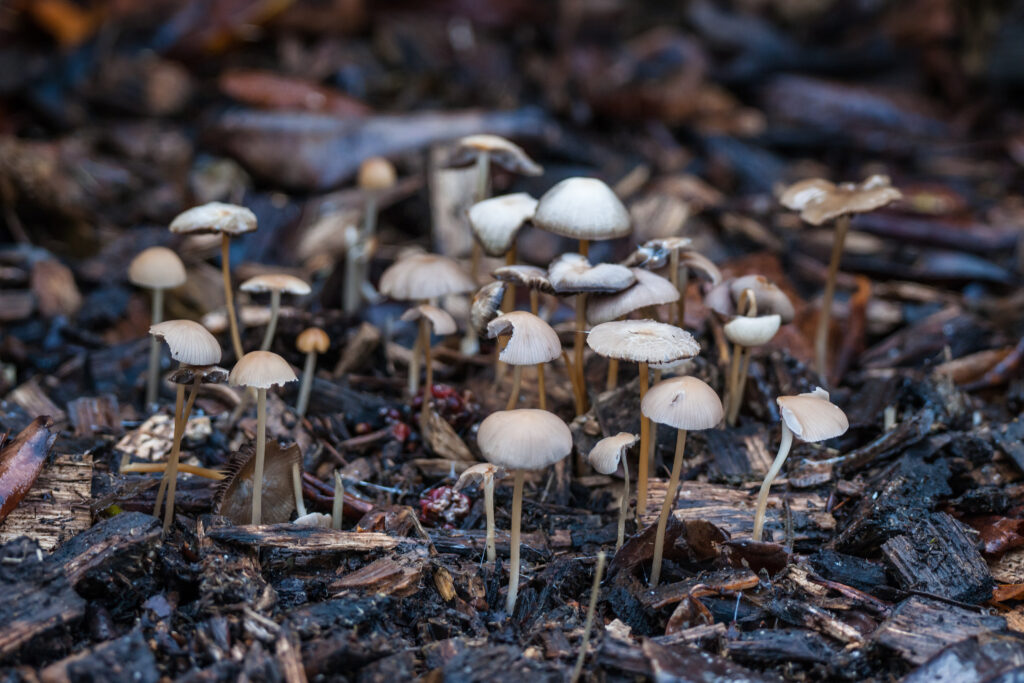What is Mushroom Compost?
Mushroom compost is a common fertilizer used in gardens. The name is a little bit misleading. It sounds like it’s the product of composting mushrooms, but it’s actually the material that mushroom farmers grow the mushrooms in. Once the mushrooms have grown, the “compost” is used up for their purposes, but it’s a great fertilizer for gardening. So, they sell bags of compost so that we can use it in our gardens.
You will also sometimes hear the term mushroom substrate. This might be a more accurate term since it’s the substrate in which the mushrooms were grown.
In this article, we’ll talk about what is in the mushroom compost, how it is made, and where you can use it. We’ll also give you some insight into where you shouldn’t use it.
What is In Mushroom Compost?
Each grower makes their own mushroom compost slightly differently, but the basic concept remains the same.
The compost is made of a bed of wheat or rye straw, or peat moss. They then add a fertilizing agent such as manure, cottonseed, canola meal, soybean meal or something similar.
How is Mushroom Compost Made
The exact methodology varies by manufacturer, but the concept is the same.
They start with a base of hay or straw. This is soaked in water like a giant sponge and then cut up into small particulates.
Manure and gypsum are blended and mixed together. The straw is then added to this mixture. The mixture is then placed in hot compost piles. They are turned daily for about two weeks while they compost. This should kill any wheat or rye seeds that remain.
They are then formed into long rows where they compost for about two more weeks. By that time, they are rows of chocolate brown material.
Next, they pasteurize this mixture to kill any weeds or anything else that might be trying to grow in it. Then it’s ready to grow mushrooms which will be sold to restaurants and supermarkets. This takes about 3-4 weeks, after which the compost is no longer good for growing mushrooms. That doesn’t mean that it’s not good for gardening, though.
The great part for gardeners is that growing mushrooms in the compost actually makes it more soil-like. It’s a great source of nutrients. When added to the soil, it actually increases the capacity of the soil to hold water.
Because of this, the growers will often sell the compost to garden shops when they’re done with it. Often they pasteurize it again before they sell it. Not all of them do this, so you may see the errant mushroom in places where you’ve used the compost.
How to Make Mushroom Compost At Home
While mushroom compost is usually made en masse by mushroom growers, it is possible to make it at home on your own.
What You Need to Make Mushroom Compost At Home
First, you will need to get the materials. Here’s what you need:
- Used horse bedding or straw – you can use straw, but horse bedding is something that a local stable may be looking to get rid of. You want a pile about five feet square and four feet high.
- Horse Manure or Chicken Manure
- Water
- Mushroom Garden Soil
To Make Mushroom Compost
- Create a pile of straw and add water. You want it to be damp but not too wet.
- Mix the straw with the manure, soil, and mushroom bacteria
- Let the compost mixture site for several weeks (this could take up to two months). The material should break down. Periodically mix the pile like you would any compost pile. Add water as needed to keep it moist. Measure the temperature with a compost thermometer, you want to be about 140 degrees Fahrenheit.
- When it’s a chocolate brown mixture, let it cool down.
- Mix it well with your soil.
As you can see, this takes some work and some space. If you have these, it’s worth trying. Otherwise, it might be worth buying the compost.
Benefits of Mushroom Compost
Mushroom compost has several benefits that help our gardens grow.
The mushroom substrate is rich in nutrients which is added to the soil where it’s added. It contains a moderate amount of nitrogen, though not as much as traditional compost. It is high in calcium. This is why mushroom compost is good for tomatoes and other plants that like a high calcium content in their soil.
Like other forms of compost, it also increases the ability of the soil to hold more water. The absorbent nature of the substrate holds more moisture than most soils by themselves. This saves you on the water for your garden.
Mushroom compost also helps the soil’s structure, helping with drainage to avoid waterlogging and water retention in dryer soils. This has the added benefit of attracting earthworms who like moist soil. They further help with the soil structure.
Not a benefit of mushroom compost, but worth noting. We are used to the benefits of the microorganisms that come with compost. They help to protect plants from diseases and continue to enrich the soil. Since most mushroom substrates are pasteurized before being sold, this kills the microorganisms, and you lose some of these benefits compared to other composts. One easy way to recoup these microorganisms is to enrich the mushroom substrate with compost tea or to mix it with traditional compost. That will pass the organisms from the traditional compost back into the mushroom compost, and you get both benefits.
Mushroom compost also makes a wonderful bedding option for worms in vermicomposting. You can also mix it in a tumbler composter to enrich that system’s compost.
How to Use Mushroom Compost
Mushroom compost doesn’t replace soil, but it does enhance it. While you can grow mushrooms in it, other plants also need soil benefits. A good ratio is about 25% spent mushroom compost to 75% soil in a container and no more than 50% in a vegetable garden. You want to mix it with the soil before planting. Your best bet is to mix it with garden soil in winter and let it sit until Spring.
Mushroom compost also makes an effective mulch when it’s fresh. Weeds don’t find roots in it either, and they will provide nutrients to the surrounding soil simultaneously. It will break down over time. When that happens, you want to work it into the soil.
This can be a really effective solution around trees, ferns, or perennials. You get the benefits of mulching and, later, the nutrient benefits of the mushroom compost.
To use the mushroom compost in flower beds and vegetable gardens, you want to till about three inches of the compost into the top six inches of garden soil, which should be fairly dry.
You can use it in containerized plants (except as noted below). For these, you want to ensure the compost doesn’t make up more than 25% of the volume.
If you have clay-like soil and want to plant there, you can mix the soil with mushroom compost. This will help break down the clay soil by retaining moisture, and the straw content will help break down the clay.
Plants That Don’t Like Mushroom Compost

High Salt Content
Mushroom compost has high salt levels. This can damage germinating seeds. For many plants, the benefits outweigh this, but some are sensitive to salt levels. You may want to avoid mushroom compost on germinating seeds or on plants that are particularly sensitive to salty soil.
Examples of plants to avoid using mushroom compost on include:
- Rhododendrons
- Azaleas
- Blueberries
- Magnolias
- Beans
- Celery
- Cucumbers
- Radishes
- Camellias
- Other members of the heath family of plants
You can remove the salts. Mixing the mushroom compost in with your vermicomposting – where you use worms to help with composting – will remove the salts and enrich your compost. You can also just let it decompose on its own. This is called “curing” and will remove the salts. Make sure to water it periodically to keep it moist.

Plants That Like Dryer Conditions
While the water retention benefits of mushroom compost are good for many plants, there are some plants that prefer to be dryer. They do not like the moist conditions common in mushroom compost. For this reason, avoid adding mushroom compost to
- Water Gardens
- Growing Succulents
Where Can I Buy Mushroom Compost Near Me?
You can buy mushroom compost at most garden centers in your area. You can usually buy it by the bag or even in bulk by the truckload if you want it.
When you’re buying it, here’s a good rule of thumb to figure out what you need – one cubic yard of mushroom compost will cover about 160sq ft of soil to a two-inch depth. That should help you get started.
You could even try your local Lowe’s or Home Depot to see if they carry mushroom compost, but your larger local garden shops will likely carry it.
Frequently Asked Questions about Mushroom Compost
Is mushroom compost good for a vegetable garden?

Mushroom compost can be very good for a garden. It’s especially helpful if you want to retain more water in your garden. For example, if you have dry, sandy, or clay-like soil, the substrate will help counteract that and retain more water for your vegetables.
However, there is such a thing as too much of a good thing. You want to keep your mix to no more than 50% mushroom compost in your garden (25% in a container).
Is Mushroom Compost Organic?
There is no straight answer here. The answer is that it depends. Even though it has all-natural components, the grower may have added fertilizers or pesticides to the mix that will be part of what you buy. The easiest way to identify organic mushroom compost is to check the labeling before you buy it. If you can’t find any clear indication there, then you can call the grower and confirm of its organic mushroom compost or not.
What Are the Benefits of Mushroom Compost?
Mushroom compost adds nutrients into your soil like calcium, potassium, and nitrogen. It also helps with water retention of your soil. It doesn’t have the microorganisms common in other forms of compost, but mixing it with traditional compost can help give you both benefits.
Its high salt content means that some plants don’t like it, and you want to be careful not to use it for these.
